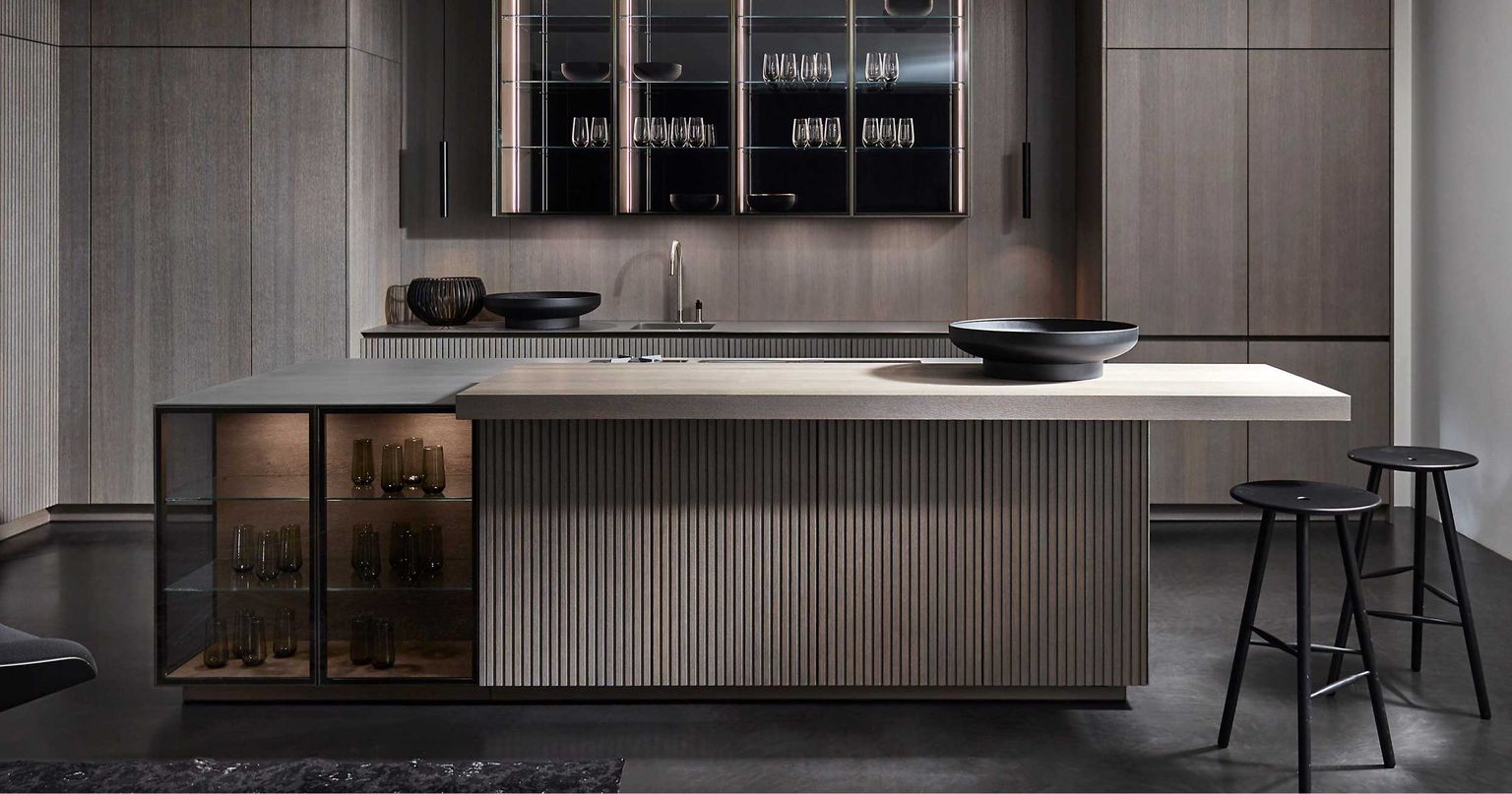
Materials: Veneer lamellar structure
Harmony, simplicity, and natural materials
In the context of kitchen design, Wabi-Sabi emphasizes a functional yet beautiful space that radiates warmth and authenticity. It’s a departure from highly manufactured, ultra-modern kitchens, focusing instead on designs that feel grounded, lived-in, and timeless. Key characteristics of a Wabi-Sabi kitchen include:
1. Natural Materials
Wabi-Sabi kitchens rely heavily on organic materials like wood, stone, clay, and metal. These materials not only look beautiful but also age gracefully, adding character over time. In Mallorca, with its rich history and proximity to nature, incorporating local stone, terracotta tiles, and wood can seamlessly blend with the island’s traditional architecture. The grain of wood, the weathered look of stone, and the natural patina of metals all align with the Wabi-Sabi ethos.
2. Embracing Imperfection
Wabi-Sabi celebrates imperfections such as asymmetry and irregularity. In the kitchen, this could manifest in uneven countertops, hand-crafted ceramics, or bespoke cabinetry that doesn’t rely on straight lines and uniformity. This approach creates a relaxed, lived-in atmosphere that invites you to feel at home and comfortable in the space.
3. Simple, Uncluttered Spaces
The Wabi-Sabi kitchen rejects excessive ornamentation and overly polished surfaces. Instead, it celebrates minimalism and functional beauty. Storage solutions tend to be simple and integrated, with open shelving and raw wooden countertops providing both aesthetic appeal and practicality. The aim is not to create a space full of stuff, but rather a peaceful and harmonious environment where each item has purpose and meaning.
4. Soft, Earthy Color Palettes
In a Wabi-Sabi kitchen, the color scheme typically draws from the natural world. Earthy tones like muted greens, browns, grays, and terracotta are common, complementing the Mediterranean environment of Mallorca. These hues reflect the surrounding landscape, from the sandy beaches to the rugged hills, enhancing the connection between the interior and the natural surroundings.
Why Wabi-Sabi Works Perfectly in Mallorca
Mallorca, with its rugged coastline, rustic stone buildings, and Mediterranean charm, provides an ideal backdrop for Wabi-Sabi kitchen design. The island's traditional homes often feature natural materials like limestone and wood, which are the perfect canvas for the Wabi-Sabi aesthetic. Additionally, the laid-back lifestyle and appreciation for nature in Mallorca aligns with the principles of Wabi-Sabi—finding beauty in simplicity and imperfection.
The Wabi-Sabi design ethos also complements the Mediterranean climate. Kitchens that embrace raw, natural textures tend to age gracefully under the sun and sea air. The patina that develops on materials like wood and stone, rather than detracting from their beauty, only enhances it, telling the story of the space over time.
Moreover, Mallorca is a place where local artisans thrive. Incorporating handmade, locally crafted elements into a kitchen not only supports the community but also brings a unique, personal touch to the design. Whether it’s hand-carved wooden shelves, rustic pottery, or locally sourced marble countertops, these pieces perfectly capture the Wabi-Sabi philosophy of valuing imperfection and individuality.